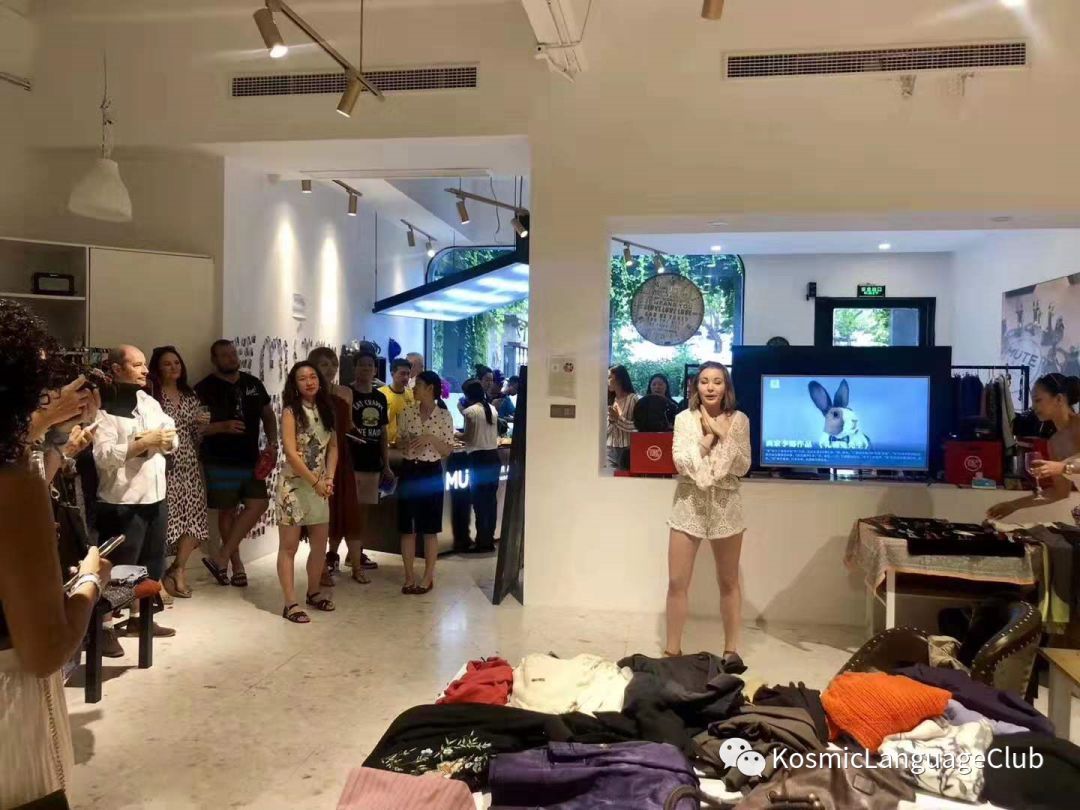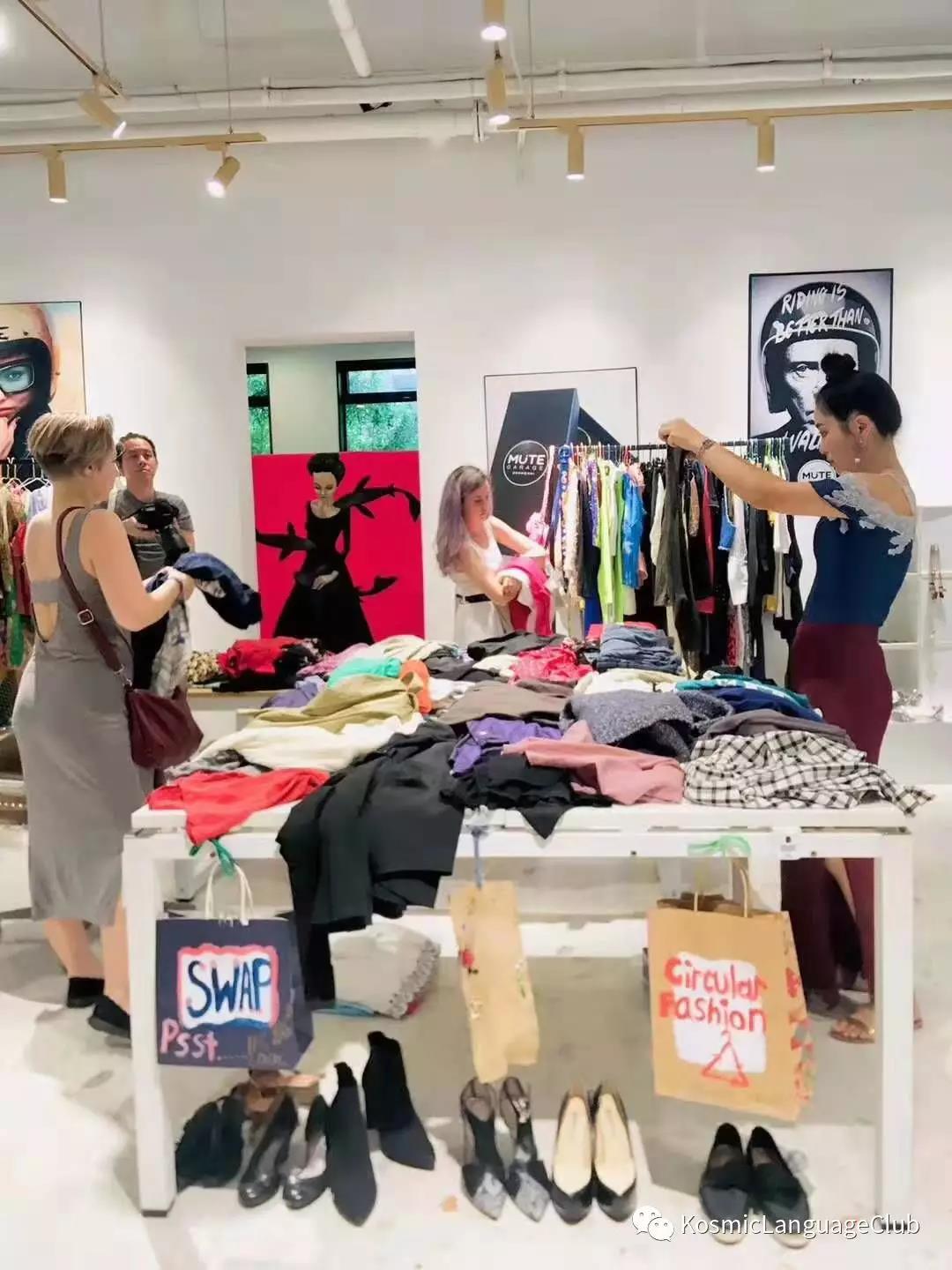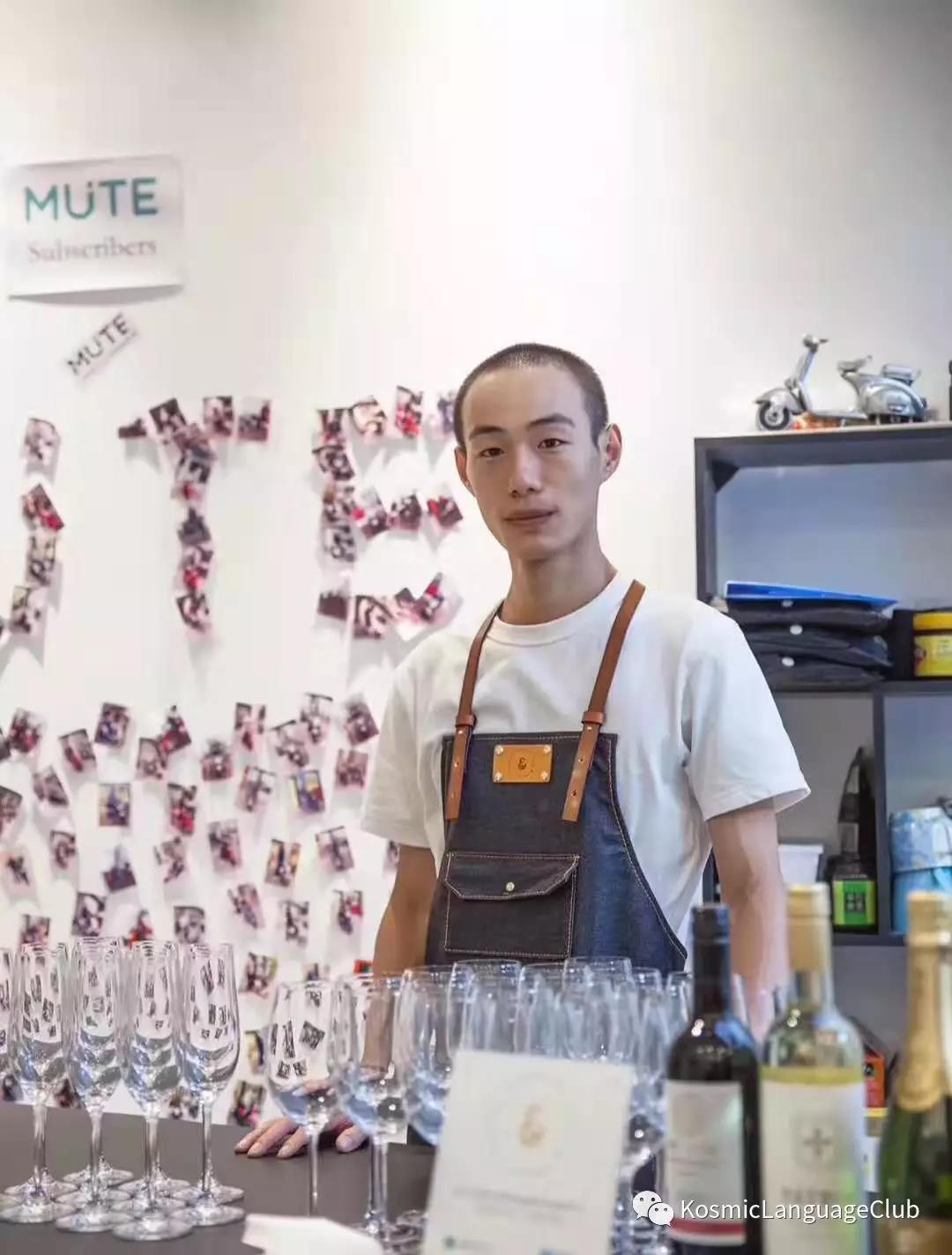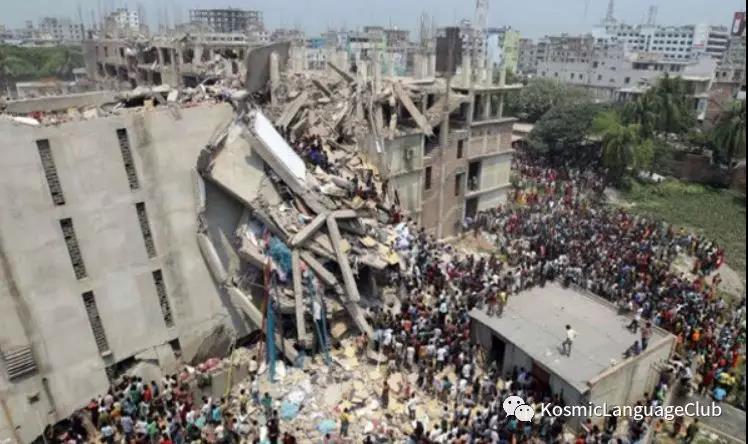Jennifer: Being a "SAVVY Exchanger" Fashion and environmental protection go hand in hand
2019-08-23
Jennifer, a language learner in KLC
An educater, artist, blogger and traveller from America
Developping her environmental cause in Shanghai
JenniferJena,KLCLanguage learner
Educators, artists, bloggers and travel enthusiasts from the United States
Currently developing environmental protection business in Shanghai
KLC: Hi Jennifer, how are you? Thank you for accepting our interview. Could you briefly introduce yourself?
KLC: Hi Jennifer, how are you today? Thank you for participating in our interview. Can you briefly introduce yourself?
Jennifer: My name is Jennifer Stamm and I am a co-organizer of SAVVY Exchanger, which is a clothing and eco-friendly community that believes in circular fashion, for a sustainable world. We have monthly events, where we get together and either squat our books or exchange our clothing. We also have a big second hand market where we have sustainable venders and sustainability speakers, and then we are also working on sustainability workshops where we get together and make certain things like tooth paste and shampoos and our own products. That's in progress. But it's mainly to help to educate China a bit more on how to do more eco-friendly especially when they are consuming.
Jennifer: Hello there! My name is Jennifer Stamm and I am one of the organizers of SAVVY Exchanger. SAVVY Exchanger is an organization related to clothing and environmental protection. Our main philosophy is recycling, fashion and sustainability. We have activities every month, we exchange our clothes and books. Sometimes we also share our sustainable ideas on our own second-hand market, and we have our own speeches. We also cooperate with some studios. We get together to make some special things, such as environmentally friendly toothpaste, shampoo and other things. Everything is still in progress, but we really hope that more people around us can have more environmental protection concepts when they consume.
Jennifer in her event
KLC: I notice that the name of your organization is SAVVY Exchanger, what is the meaning of this name?
KLC:I found out that the name of your organization is "SAVVY Exchanger". Does it have any origin?
Jennifer: Savvy means "practical". If you are a "Savvy Person", you think very well, you can do things easily, when there is a problem you can figure it out and make clever decisions. An exchanger is (speaking)"多duō少 shǎo钱qián""How much…""I want this, you want this", exchanging things.
Jennifer: Savvy means "effective". If you say "savvy person", it means that this person has a good idea and can accomplish many things easily. When he faces a problem, he can point out the key to the problem and make smart choices. And "exchanger" is someone who does business and exchange.
The "Savvy Exchangers" in event
"Savvy exchangers" in the event
KLC:Oh this name is quite interesting. What kind of things you mainly exchange?
KLC:Oh, so this is a very specific name, very interesting. What do you usually exchange?
Jennifer: We have 4 group chats on wechat. One is just a clothing exchange group that has 500 people in it already and one is like an all items exchange from furniture to books but no clothing. Another one is just a book exchange and the other one is a sustainable and'go green'idea exchange.
Jennifer: We have 4 large groups on WeChat. The first one is just for exchanging clothes, and it is already full of 500 people. The second group is used to exchange other daily necessities besides clothes, furniture, books, etc. The third is only for the exchange of books. There is also a group for the exchange of ideas. We exchange our ideas about "green".
KLC:How often do you hold events?
KLC:How often do you hold events?
Jennifer: We have our second hand sustainability talk events, it's a big event, once a month and we have a book squat, which is just a casual meet-up in a café, not a very big, once a month.
Jennifer: We hold a large-scale conversation event every month, as well as some small second-hand book markets. This is relatively easy and will be held during the afternoon tea time in some coffee shops. These small events are also once a month.
KLC: What about clothing events? I saw you shared photos, you had one two weeks ago. How did it go?
KLC: Can you focus on your clothing exchange activities? I saw the photo you shared on WeChat. It should be 2 weeks ago. How is the activity?
Jennifer: Really good, about 45-50 people attended, and the next one is on the 25 th of August, Sunday, at Mute Garage on Yanping Road, J ingan, by the Guilin Road.
Jennifer: That event was very successful. Almost 45-50 people came. The next time was August 25, Sunday. It is close to Guilin Road, Mute Garage on Yanping Road.
KLC: Okay so now you will hold regularly events in this open space, you have developed cooperation relationship with them.
KLC: Oh, I see, so you have a long-term cooperative relationship with this shared space. Do you regularly carry out activities there?
Jennifer: Yes the Mute Garage is helping to sponsor the events by providing space, and there are an eco-friendly scooter company.
Jennifer: Yes. This place sponsors our events, and there is also a green electric car company inside.
Mute Garage is one of the sponsors
One of the sponsors of Mute Garage event
KLC: Are you looking for more partnerships with other eco friendly companies?
KLC: Will you pursue business partnerships with more organizations?
Jennifer: We are kind of reaching out to other people who happen to have the same mindset so any one who is in secondhand clothing or maybe providing a new sustainable way, for example reusable bags or plastic. We've also reached out to Linwards which is a fitness group that also does travelling trips and they sponsored our last event by giving each person who came CNY100 voucher for their yoga class, and their classes are very good. We also talked to Boomi. They have sustainable products like bamboo tooth brushes; reusable makeup pads… so we reached out because we want their products at our events to be able to provide people with more everyday objects that we use that are more sustainable. That is the biggest thing: trying to reach out to people who are creating these everyday objects and things that we use that are more sustainable.
Jennifer: We will contact and communicate with companies or individuals who happen to share our ideas. Or they are interested in clothes exchange, or they can provide other sustainable products. For example, we have contacted Linwards before, they are a fitness club and also manage some travel. They sponsored our last event and gave each customer a 100 yuan yoga class voucher. Their class is really good! And Boomi. They will produce some sustainable products, such as toothbrushes made of bamboo and reusable cosmetic pads. Our cooperation with Boomi hopes to combine their products with our activities to give people more sustainable choices of daily necessities. This is also our greatest wish, starting with everything every day, to make our lives more sustainable.
KLC: OK so the key words of your events are sustainable, second hand……
KLC: So the key words of your activity are sustainable, second-hand...
Jennifer: We also try to educate on fast fashion, and consumers. The biggest thing here in China is——in America, people are more aware, I think and there is not just a stigma on second hand clothing so if I tell a friend everything I have on is second hand she would say "oh that's very cool and trendy". But in China if you say that, most people would say "ow that's gross" and it's more because Chinese "treasure" their clothing more and there is a whole feeling around every piece of clothing so they don't want to wear someone else's. But the problem with that is now there is 52 seasons instead of 4… so people are running to the stores and buying all the time and then throwing away even more . So if you tell them to donate, they think it's ok because you are donating and clothes go to the people who need it. But the problem with that is there is more clothing than there are needing people so the clothing is going to these centuries and they'll sell some of it but even there people don't want it so it just goes to the landfill and eventually goes to the ocean.
Jennifer: We are also trying to change the current fast fashion, the first step is to change consumers. The biggest problem in China is ideas. I think in the United States, people don’t feel ashamed of second-hand goods in the second-hand market. If I tell my friends that everything I buy from the second-hand market, they will say "Oh this is cool", but if I am here, it is more likely that everyone thinks it is crude. I think the main reason is that people in China still value the value of clothes and their own feelings about clothes, so they are reluctant to wear other people's clothes. But the current problem is that due to the rapid climate change, we are no longer 4 seasons but 52. People always go to the clothing store to buy a lot of clothes, and then throw them away when they find there are too many. If you say that we can donate, then everyone will find it acceptable because you will donate clothes to people in need, but another problem is that the number of clothes far exceeds the people who need it. So the clothes entered these countries, and they sold some of them, but the rest went to landfills and finally into the ocean.
KLC: Could you tell us more about it?
KLC: Can you talk about this in detail?
Jennifer: There are so many problems but another huge one with fast fashion is: the biggest clothing producers are China and Bangladesh. In Bangladesh there is a huge factory which is a very big sweatshop and that it actually collapsed and working conditions were so bad and many people died. So my point is that the working conditions are so bad in some countries. Not as much in China but in some third-world countries, that people can't live and are suffering a lot because with the more production — because the consumers' need are so high — that the pressure to produce is even higher, and the people that are in charge all of these workers, are just probably cruel and don't provide good working standards. Something is not working properly here because it's a three trillion dollar market and it's lucrative but we can't take care of the people who are providing for us. Many Americans would say that we are providing jobs for them and that's something to take into account but being American myself, it makes me sad because it should not be the best solution for them. We are just providing poor work conditions and very low revenues. Why do we have to provide jobs to them such a terrible job, it's not a good choice to make 2 dollars to 10 dollars a month, working in horrible conditions.
Jennifer: Fast fashion has many problems, but one of the big problems is: the largest clothing manufacturers are China and Bangladesh. There is a huge factory in Bangladesh. This is a very big sweatshop. It collapsed before and many people died as a result. So my view is that working conditions in some countries (fast fashion) are very poor. It is not so obvious in China, but in some third world countries, people will find it difficult to survive and endure unimaginable torture. Because the production volume is increasing-because the consumer demand is so high-this creates more pressure, and the managers in charge of production are cruel, they have no intention of providing a good working environment. These phenomena are abnormal, because this is a three trillion dollar market, which is lucrative, but we cannot take care of the people who provide services to us. Many Americans will say that we are providing them with employment opportunities, and this is our contribution to them. But as an American, this makes me feel sad because it should not be the best solution. We provide poor working conditions and low income. Why do we offer them such a terrible job? Earning 2 to 10 dollars a month is not a good choice.
The sweatshop collapsed in Bangladesh -Photos from the Internet
The collapsed fast fashion factory in Bangladesh—photo from the Internet
KLC: Who do you mostly want to share these kinds of'education' with?
KLC: To whom do you most want to pass this kind of education, ideas and concepts?
Jennifer: I would love to start young because I think this is the generation now change the world. Because the older generations will be very slow to change and everyone in their 20's is mostly thinking "everything I do is for my job" so how can I stop my job and change my life? Everything is work and money. They want convenience and "fast". But I think if the new generation is educated on how that system is a bit broken and not really helping humanity, they will be more likely to provide new ways to create a better society.
Jennifer: I hope it is a child, this is a generation that can change the world. People of the previous generation will change slowly. When I was in my 20s, the main consideration was "work." How could I stop my work and change my life? The center of life is work and earning money. They need convenience and "fast". But I think if the new generation learns to change this system a little, it will change the whole society.
WE MAKE LANGUAGES EASY!






